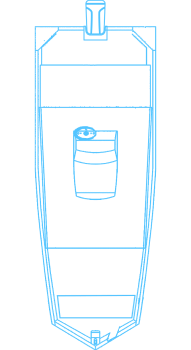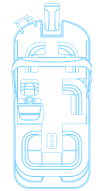The research, commissioned by ICOMIA with leading global engineering consulting firm Ricardo plc, reveals that due to the unique nature of recreational boats’ on-water environment, a variety of technology solutions must be considered to continue reducing carbon emissions.












There is no one-size-fits-all technology solution
The ability for alternative and emerging propulsion technology systems to reduce carbon emissions is highly dependent on the type of boat, how it is used and annual hours of operation. Low annual utilisation combined with longer lifetimes fundamentally impacts the potential for various alternative propulsion technologies to meaningfully reduce carbon emissions relative to conventional baseline technologies.
Sustainable marine fuels can reduce emissions by up to 90%
Sustainable liquid marine fuels are expected to be the most suitable source of energy by 2035 without compromising a boat’s cruising range or performance. They are compatible with the approximately 30 million recreational boats in use worldwide, allowing for wide-scale reduction in carbon emissions with immediate, widespread adoption.
Hydrogen is an emerging technology but its production process must be optimised
Hydrogen produced via electrolysis with zero fossil fuel electricity can reduce carbon emissions at similar levels as sustainable marine fuels. However, this may result in a significant reduction in overall craft range relative to baseline fuels due to the volume required for hydrogen storage.
Electric is an option only when used in the right setting
Watercraft with lower utilisation are unlikely to find battery electric systems result in a reduction in carbon emissions compared to the baseline internal combustion engine. This study considered both battery lifetime in years and recharging cycles, as battery performance is expected to degrade over time regardless of utilisation. This factor could result in several battery replacements, even in watercraft that are less frequently utilised.
Hybrid is a good option for boats used for longer periods of time
Hybrid boats that use both electric and internal combustion engines powered by liquid fuels can also reduce carbon emissions from boats in certain scenarios—namely, boats used for longer periods of time and for greater distances.
The path forward
This new research paves the way for the recreational marine industry to begin educating global governments and boating industry stakeholders on the technologies and policies needed to further reduce carbon emissions.
1U.S. Environmental Protection Agency (EPA), https://www.epa.gov/ghgemissions/global-greenhouse-gas-emissions-data
About Ricardo PLC
Ricardo PLC is a global strategic, environmental, and engineering consulting company, listed on the London Stock Exchange. With over 100 years of engineering excellence and employing close to 3,000 employees in more than 20 countries, we provide exceptional levels of expertise in delivering innovative cross-sector sustainable outcomes to support energy transition and scarce resources, environmental services together with safe and smart mobility.
Our global team of consultants, environmental specialists, engineers and scientists support our customers to solve the most complex and dynamic challenges to help achieve a safe and sustainable world. Visit www.ricardo.com.